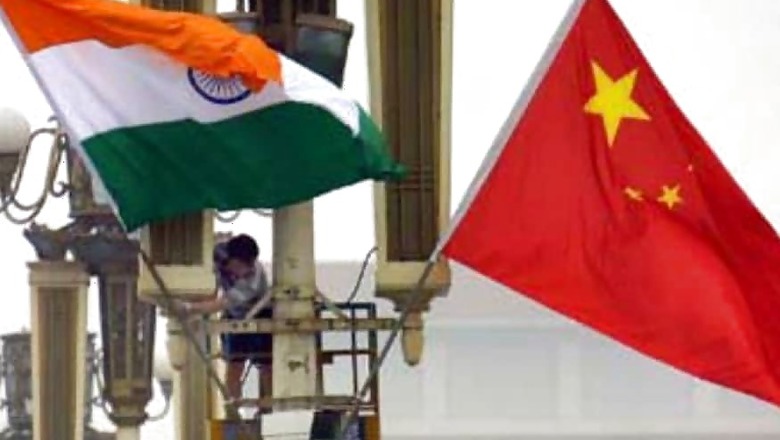
views
New Delhi: India's relations with China have returned to a "normal track" and there have been positive developments like Beijing giving market access to Indian products, but much is yet to be done in addressing the widening trade deficit, official sources said.
India's relationship with China was severely hit by the 73-day face-off between armies of the two countries at the strategically sensitive Doklam tri-juction in the Sikkim sector last year.
The sources said the political relationship between the two neighbours has just not only been restored but heightened in the past one year.
At the same time, they said India was seriously concerned over China's Belt and Road Initiative and the way international norms and standards in giving contracts under the project were being flouted .
The sources also said India expects China to walk the talk on the issue of giving market access to Indian products.
"The positive development is that relations with China have returned to the normal track," said an authoritative source, while summing up India's diplomatic engagement in 2018.
Calling Indo-Pacific as a major area of India's interest, the sources said the country was keen to talk about it with China and the issue was likely to figure regularly in bilateral talks between the two nations.
They said there was no total unanimity between India and the US on all issues relating to the Indo-Pacific and that New Delhi wants all major powers to be engaged over key matters.
Prime Minister Narendra Modi and Chinese President Xi Jinping have held bilateral meetings three times and held an informal summit in Wuhan this year, which the sources described as "unprecedented".
They said the second informal summit between leadership of the two countries is likely to be held in the second half of 2019.
On partnerships with leading powers, the sources said India's ties with the US proceeded on a positive track, while "significant trust" has also been built with Russia.
The sources said the China-Pakistan Economic Corridor (CPEC) is a a direct challenge to India's sovereignty and territorial integrity and that it is for dual use, including for military purposes.
India has been strongly opposing the CPEC, which is part of the BRI, as it passes through Pakistan-occupied-Kashmir.
On BRI, they said it should follow international norms, ensure transparency and most importantly, respect sovereignty and territorial integrity of countries.
Though China has been saying that BRI will ensure economic benefit for the region, the sources said India feels it could destabilise the region.
The sources said contracts are being awarded under the BRI flouting laid down international norms and rules which was a matter of great concern.
"You now have a situation where an entirely different set of rules have been put in place. Technical specifications and customs rules are being changed," a source said.
They said the narrative on BRI is changing as some countries have started talking about the debt problem arising from the initiative.
Asked whether India would rethink on joining BRI if its concerns are addressed, the source said, "There is no change in our position. Hypothetically, if they were to address these concerns, how we would react is something I can't say."
On market access to Indian products, the sources said some positive developments are taking place on allowing market access for certain agri products.
"We are seeing unblocking of applications and requests for market access for a number of our products, including Basmati and non-Basmati rice, sugar among others," said the source.
Bilateral trade between India and China rose by 18.63 per cent year-on-year and reached a historic high of USD 84.44 billion last year. However, the trade deficit continues to remain high at USD 51.75 billion in 2017.
India has been voicing its concerns to China over the huge trade deficit for several years. Both sides have held several rounds of talks on the issue in the last few years.




















Comments
0 comment